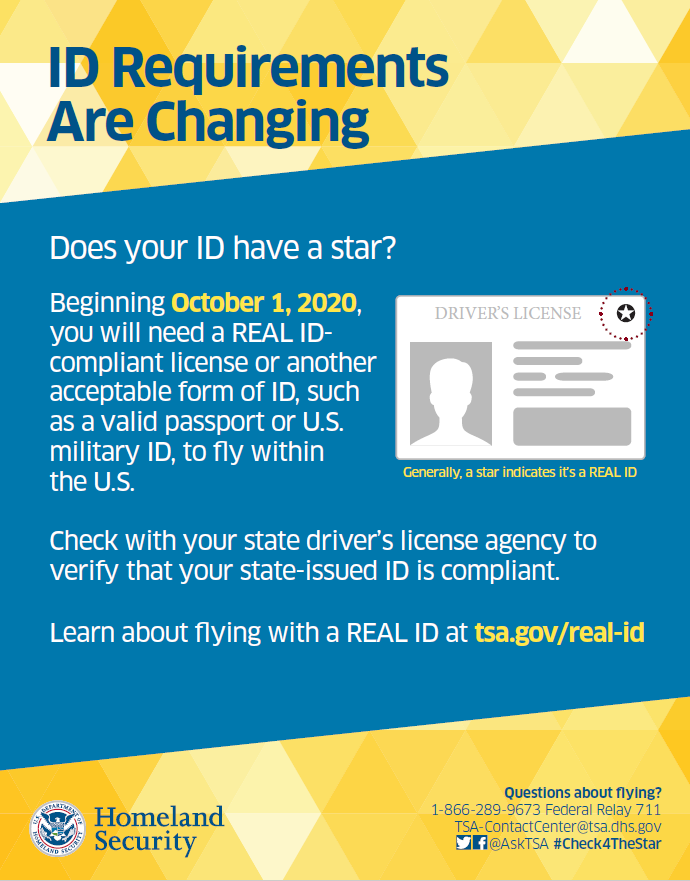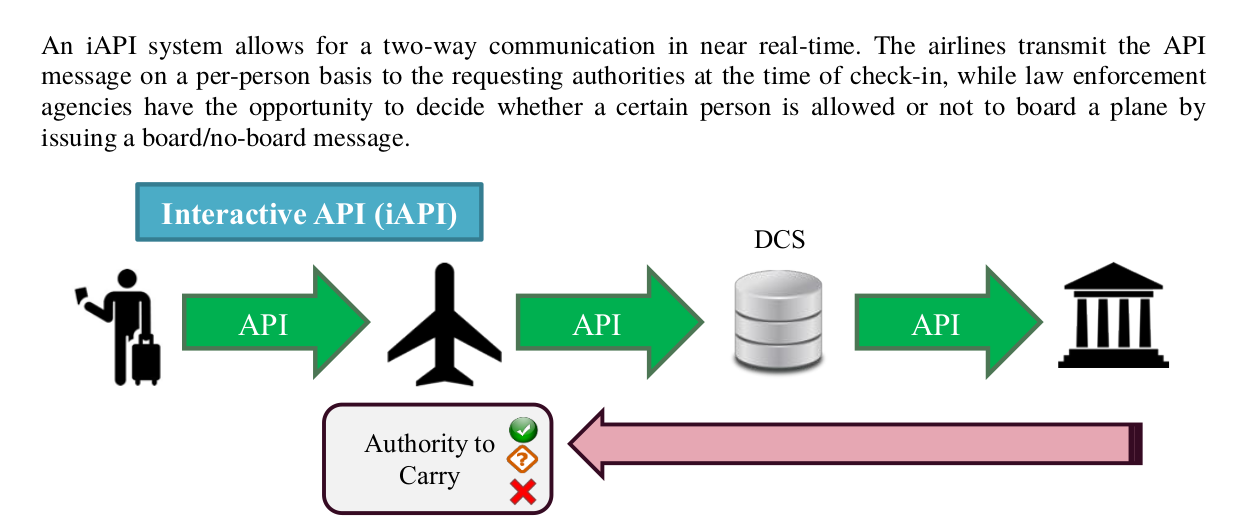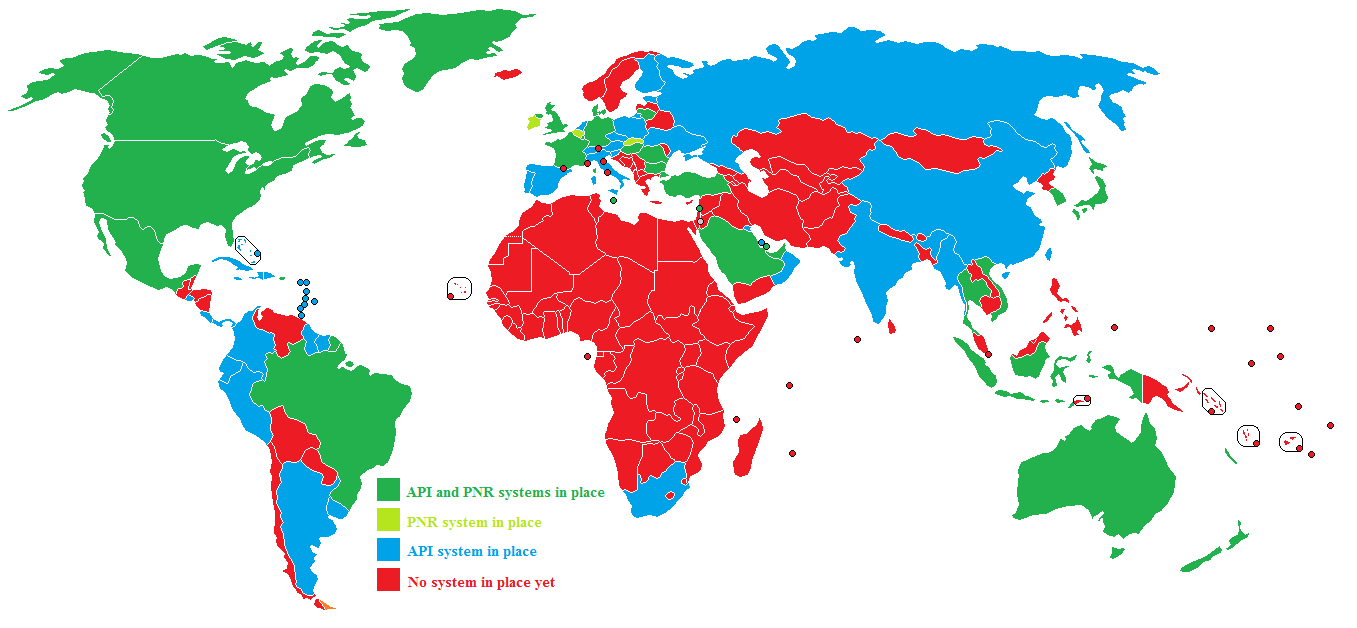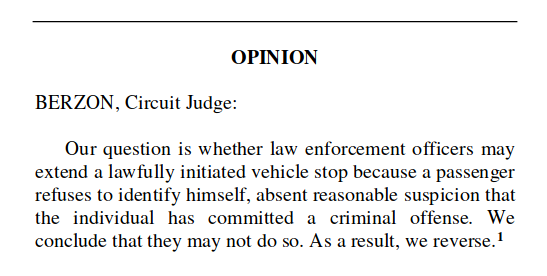 [This sign is a lie.]
[This sign is a lie.]
According to a press release issued today by the Transportation Security Administration, the TSA plans to start posting signs as shown above in airports throughout the USA, claiming that “ID Requirements Are Changing” and that “Beginning Beginning October 1, 2020, you will need a REAL ID compliant license or another acceptable form of ID, such as a valid passport or U.S. military ID, to fly within the U.S.”
According to today’s TSA press release:
REAL ID-compliant licenses or other acceptable forms of ID, such as a valid passport, federal government PIV card or U.S. military ID, will be mandatory for air travel beginning on October 1, 2020. Critically important, on October 1, 2020, individuals who are unable to verify their identity will not be permitted to enter the TSA checkpoint and will not be allowed to fly.
These signs and this and similar press releases are lies.
This isn’t the first time, and probably won’t be the last, that the TSA and/or DHS have made lying statements, issued lying press releases, or posted lying signs about the REAL-ID Act and ID to fly.
Is ID required to fly? No.
One would expect “requirements” announced by a Federal agency to be contained in laws or regulations. But the TSA’s own lawyers, officials, and witnesses testifying under oath have told judges in every lawsuit in which the issue has arisen that no law or regulation required domestic air travelers to have, carry, or show any ID cards or credentials.
The TSA’s responses to our Freedom Of Information Act (FOIA) requests for its records of people who show up at TSA and TSA-contractor checkpoints at airports without ID show that more than 98% of them — hundreds a day, and tens of thousands every year — are allowed to continue to board their flights without carrying or showing ID.
Is this scheduled to change? No.
Changes to Federal laws require action by Congress. No bill has been introduced in the current Congress (or ever, so far as we can tell) that would impose any ID requirement for air travel.
Changes to Federal regulations require a process governed by the Administrative Procedure Act that starts with a “Notice of Proposed Rulemaking” (NPRM) published in the Federal Register. No notice of any proposed rules related to ID to fly has been published.
In 2016, the TSA published a notice that it planned to seek approval from the Office of Management and Budget (OMB) — but had not yet sought that approval — for a new version of a form some air travelers without ID have been asked to fill out. (Because the form has never been submitted to, or approved by, OMB, its use is illegal and no penalty can lawfully be imposed for declining to respond to the questions on the form.)
We pointed out to the TSA and OMB that it was improper to ask OMB to approve this form without first enacting a law or promulgating regulations providing a legal basis for the form. Other organizations and individuals also objected to the proposed form. The TSA has neither responded to any of the objections nor submitted the form for OMB approval.
Will the REAL-ID Act of 2005 change this? No.
The REAL-ID Act and implementing regulations are concerned only with which ID cards are considered “acceptable”, in circumstances in which some (other) valid Federal law regulations requires ID for some Federal purpose. The REAL-ID Act itself did not purport to impose any new ID requirements, either when it was enacted, in 2010, or ever.
Will I still be allowed to fly without ID in the future? Maybe, maybe not. That’s up to the TSA. But if the TSA or its contractors prevent you from traveling, without a lawful basis, they will be violating your rights and breaking the law.
Since the TSA is wielding power by secret internal orders and security directives to staff, contractors, and airlines, announced (if at all) through press releases rather than through proper formal notices in the Federal Register, it’s impossible to say with certainty what it will try to do. What it will do is likely to depend, in significant part, on its assessment of how widely and strongly particular assertions of illegitimate authority will be resisted.
The TSA has been making threats to start harassing residents of states and territories that it hasn’t chosen — in what it has claimed is its standardless discretion — to certify as being sufficiently “compliant” with the REAL-ID Act, or to give extensions of time to comply. These certifications and extensions of time have had little apparent relationship with actual compliance, so they too are impossible to predict.
The next of these threats is an extension of time to California to comply with the REAL-ID Act which is scheduled to expire at the end of the day on April 10, 2019.
We suspect, especially after today’s press release — which focuses on an arbitrary date of October 1, 2020, rather than any of the “extension” expiration dates — that the DHS will either certify California and all of the other states and territories as “compliant” (even if they aren’t) or extend their time to comply until October 1, 2020.



